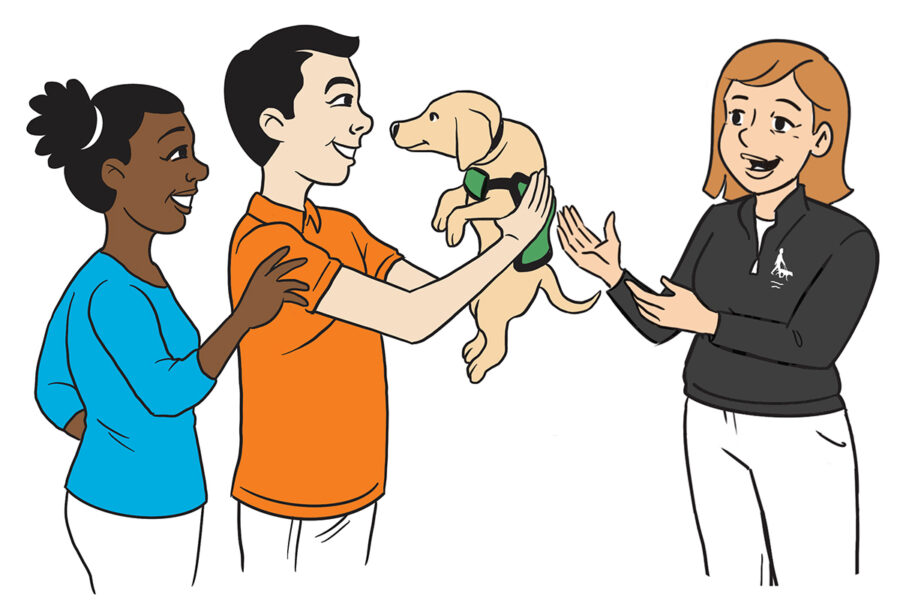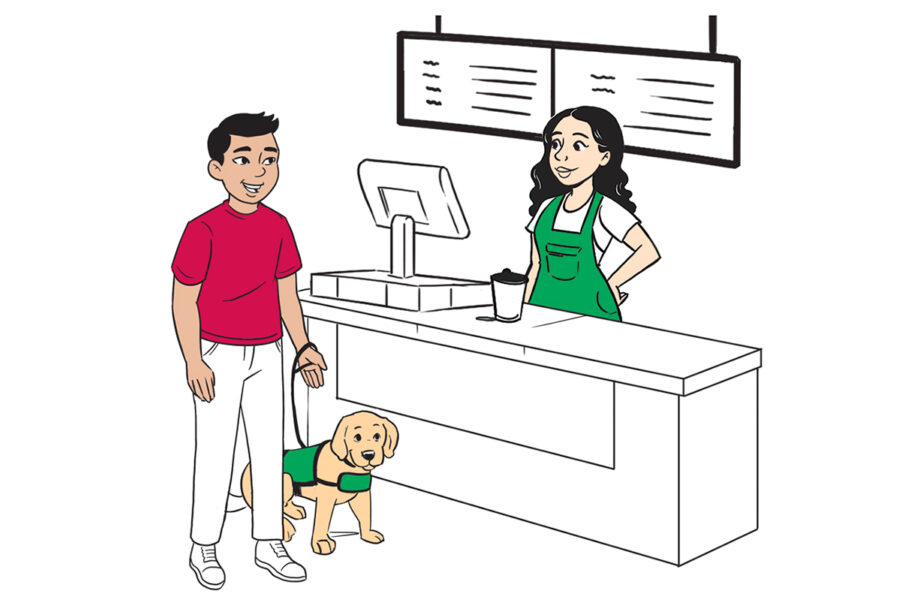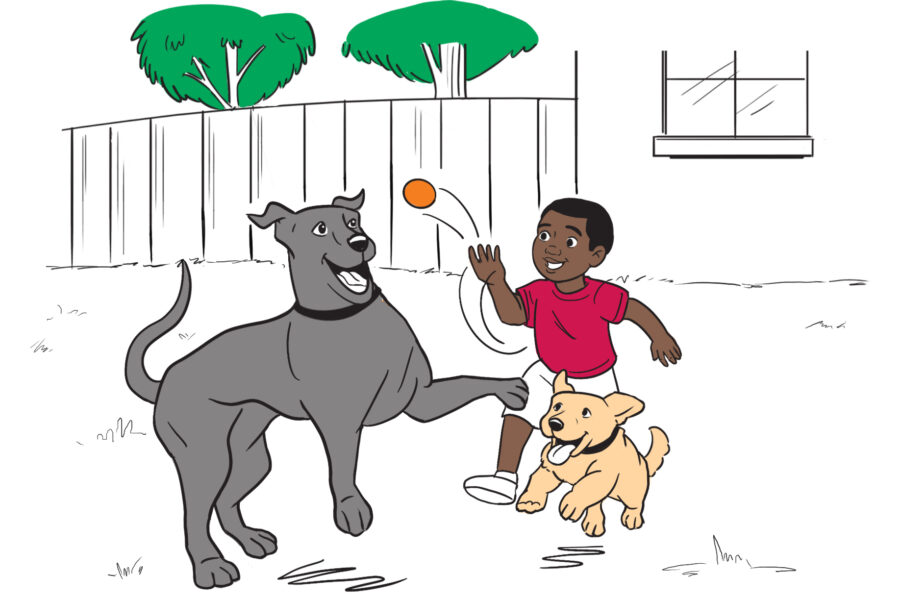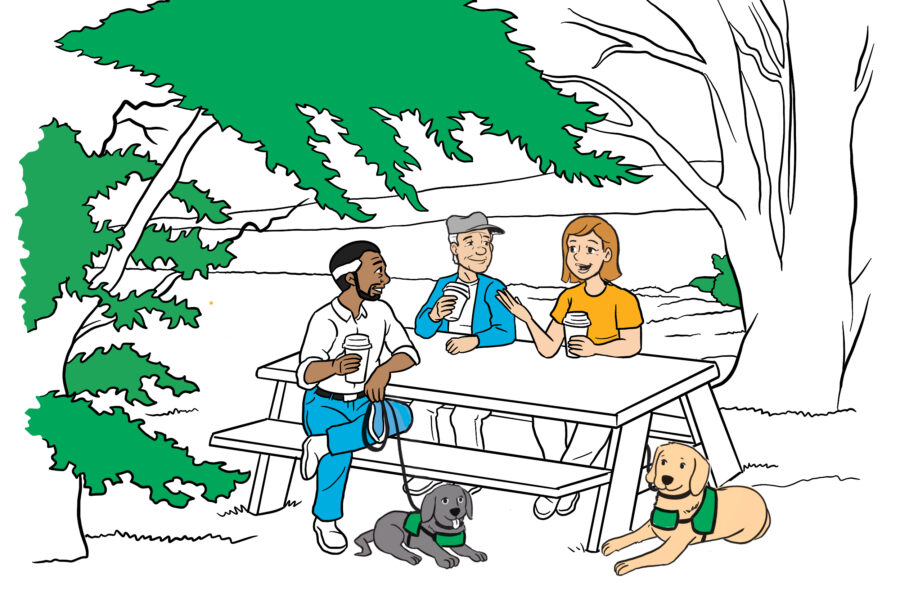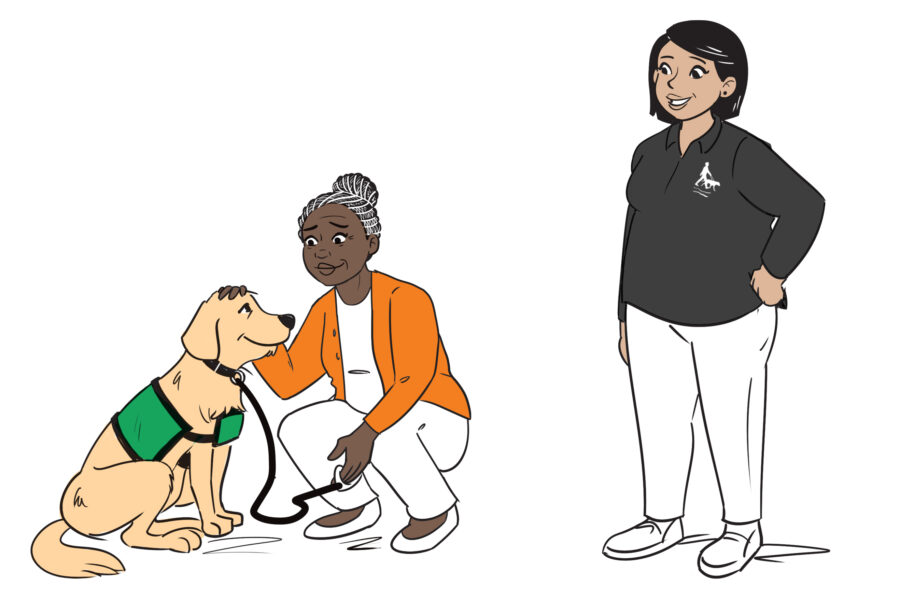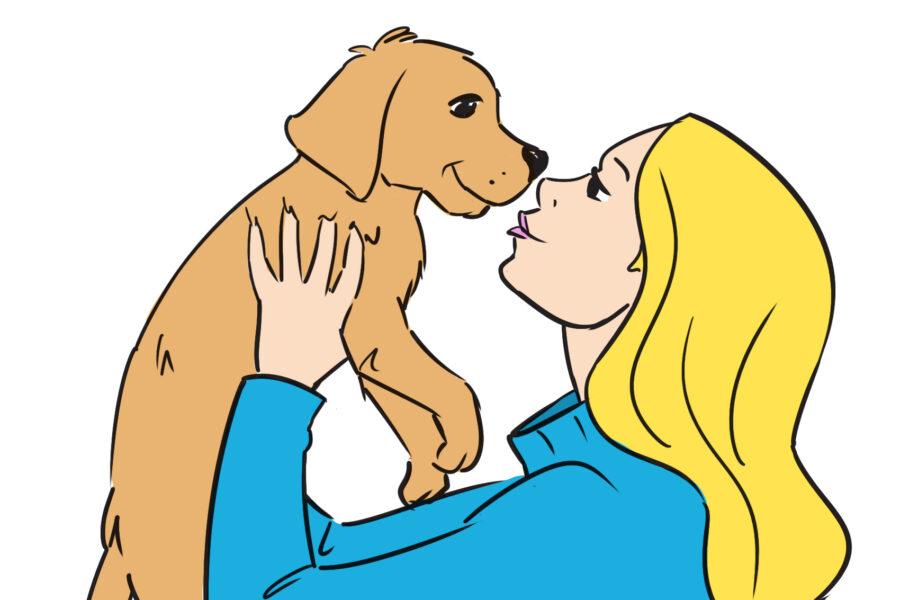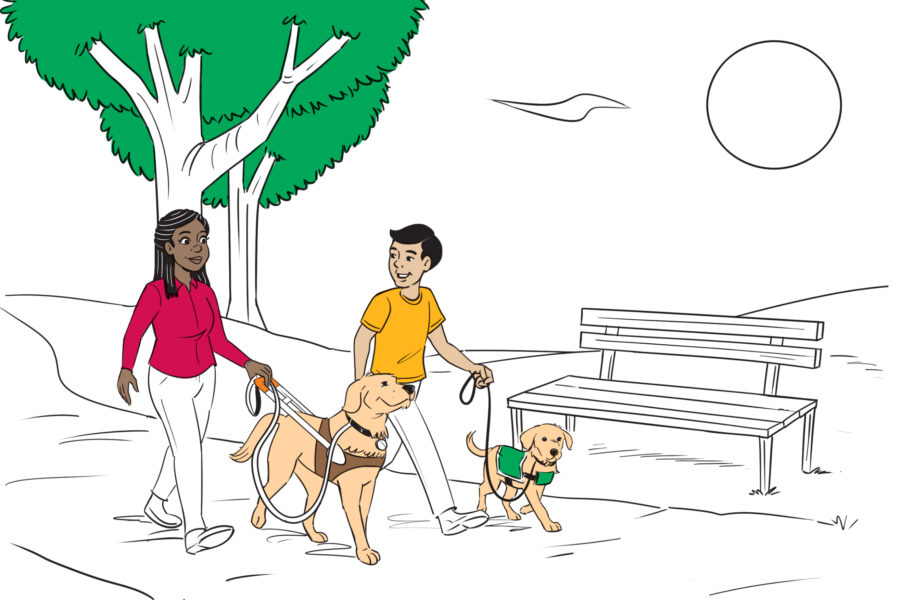Raising a guide dog puppy is a volunteer service project that is both warm and fuzzy!
You are handed an adorable bundle of fluff to care for and love. We cover veterinary care, and set you up for success with equipment and learning materials.
Puppy Raising Volunteers
Raise a Puppy, Change a Life!

Are you inspired by Guide Dogs for the Blind's mission to help people who are blind or visually impaired gain greater independence, confidence, and inclusion? Are you looking for a fun and meaningful service project? Whatever your motivation, raising a guide dog puppy is a rewarding opportunity that can change many lives – including your own!
Tell Me More! How Does It Work?
Below is a carousel feature with multiple slides. You can navigate through the carousel using the previous and next buttons. Use the arrow keys to read the testimonials.
Sounds Fun! I Have Questions...
No prior experience is necessary! Puppy raising volunteers can be any age, whether you’re 9 or 90. Families are great too! Puppy raisers are attentive learners, adaptable in different situations, and know that their effort and hard work will contribute to the puppy's potential. Most importantly, you must love puppies, and enjoy being of service.
There are different ways you can raise a guide dog puppy. The traditional program is our puppy raising club model where volunteers are members of a location-based puppy raising club. But we also offer alternative puppy raising models such as our hybrid and satellite puppy raising programs.
Our puppy raising program is typically available to volunteers in the following states: Arizona, California, Colorado, Idaho, Nevada, Oregon, Texas, Utah, and Washington.
Imagine the PAWSibilities!
Check out our Puppy Raising Guidebook, a comprehensive online resource that contains everything you need to know about raising a puppy for Guide Dogs for the Blind (GDB).
I'm Ready! How Do I Start?
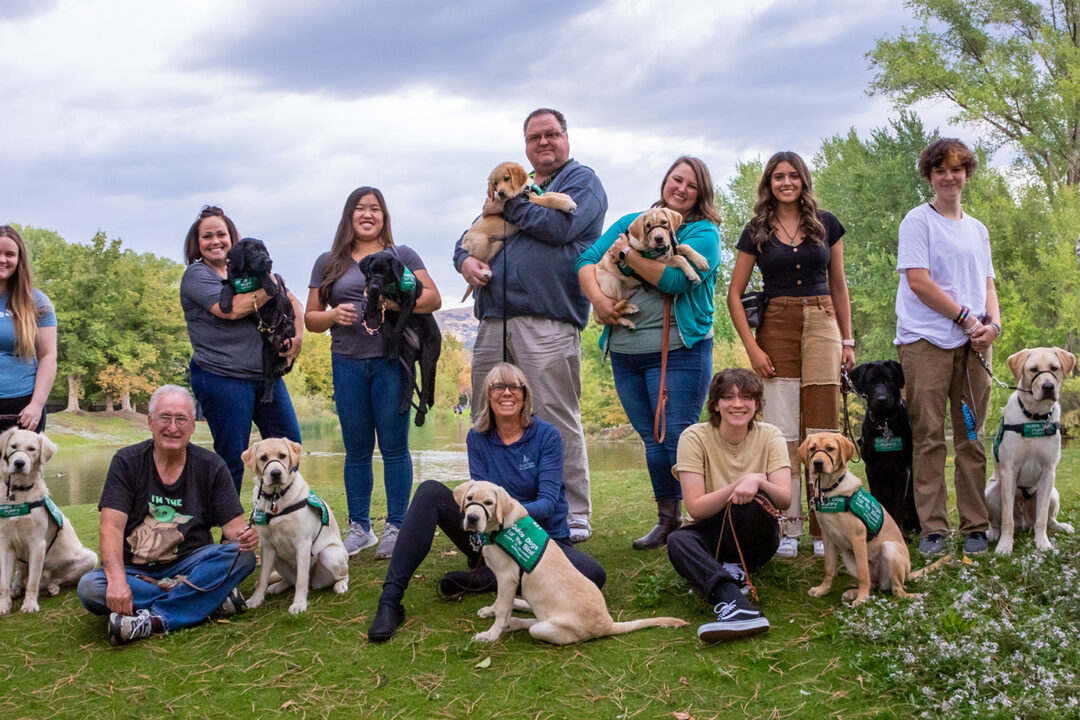

It's easy – simply fill out the Puppy Raising Interest Form, and we will be in touch!
Still Hungry for More? Watch Our Brief Puppy Raising Explainer Video
If you have additional questions, please contact Guide Dogs for the Blind's Puppy Raising Department at [email protected].
[NARRATOR]
Did you know you can change someone’s life… just by raising a puppy?
[AUDIO DESCRIPTION]
A person holds a puppy.
[NARRATOR]
Guide Dogs for the Blind is the largest guide dog school in North America.
[AUDIO DESCRIPTION]
A man walks with a puppy wearing a green training vest.
[NARRATOR]
But we can only do what we do with your help.
We’re always looking for valued volunteers to usher our puppies down the path to becoming a guide dog for a person who is blind or visually impaired.
[AUDIO DESCRIPTION]
A woman walks with her guide dog.
[NARRATOR]
You don’t have to know what you’re doing! We’ll be there every paw-stride of the way with the tools and support you need.
Here’s how it works…
You are handed an adorable bundle of fluff to care for and love. We cover veterinary care, and set you up for success with equipment and learning materials.
[AUDIO DESCRIPTION]
Multiple people and families receiving puppies.
[NARRATOR]
Bring the puppy home to meet your two-legged and four-legged family members and friends.
[AUDIO DESCRIPTION]
A family meets their puppy.
[NARRATOR]
And then?
You are able to take that puppy almost everywhere you go.
[NARRATOR]
We want them to be prepared for their future as a guide dog, so these puppies need to be comfortable at schools or work, on the bus, at the beach, or in a restaurant … almost everywhere you go in your daily life, your puppy gets to go too.
But don’t worry, it’s important for these puppies to just be playful doggos too!
[AUDIO DESCRIPTION]
A boy plays fetch with his guide dog puppy and pet dog.
[NARRATOR]
Through local groups of fellow volunteers, collaboration with our staff, plus a wide range of other resources, you’ll get the assistance and guidance you need to support you and your pup as they become a confident, happy dog.
[AUDIO DESCRIPTION]
A teen boy with a young puppy in training.
[NARRATOR]
After about a year, your puppy is ready to head back to Guide Dogs for the Blind for the next step on their journey.
We’ll help you know when they’re ready.
[AUDIO DESCRIPTION]
The teen now walks with a grown puppy.
[AUDIO DESCRIPTION]
A puppy raiser bends down to say goodbye to their dog.
[NARRATOR]
And when you’re ready, your next puppy will be waiting for you.
[AUDIO DESCRIPTION]
She then receives a brand new puppy from a GDB staff member.
[NARRATOR]
All along the way, we provide a community of support so you can give back while being paid in unconditional love.
[AUDIO DESCRIPTION]
A woman with a guide dog walks and talks with a puppy raiser and young puppy.
[NARRATOR]
As we like to say, “Raise a puppy, change a life.” And the life you change might just be your own!
[AUDIO DESCRIPTION]
A woman holds a puppy.
[NARRATOR]
To learn more, visit guidedogs.com/puppy
Current Puppy Raisers
Click below to visit the Puppy Raising Community.

